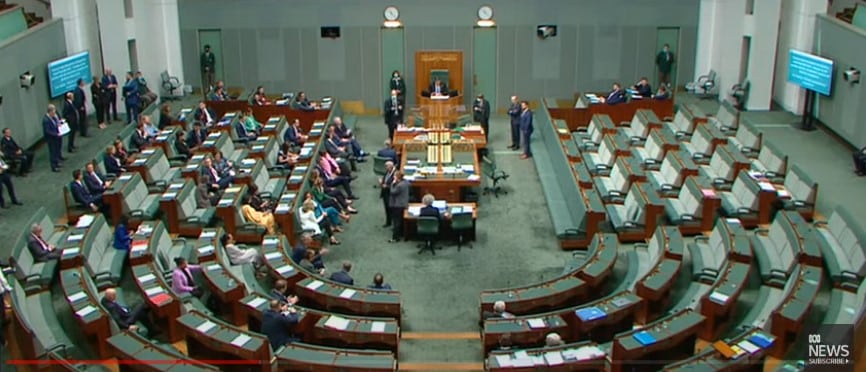The Australian parliament approved controversial legislation that places a one-year price cap on gas to address rising energy costs for households and businesses.
The government announced caps of $12 per gigajoule for gas and $125 per tonne for coal. It will freeze natural gas prices for a year and provide A$1.5 billion ($1.03 billion) in aid to individuals and small companies suffering from skyrocketing energy expenses.
Energy Matters has over 17 years of experience in the solar industry and has helped over 40,000 Australian households in their journey to energy independence.
Let us discuss and choose the best quote that suits your needs and budget. Use our free solar quote system to get up to 3 free solar quotes from our network of trusted, local installers.
Complete our quick quiz and begin your solar journey today!
Despite the Coalition voting against the idea at a special session of federal parliament, the Albanese government’s legislation controlling gas prices and providing consumer refunds to give power price relief has passed the Senate.
After pledging to provide cash in its upcoming budget to assist low-income households in moving from gas to electricity, the government was able to secure the Greens Party’s backing to enact the legislation.
Mixed reactions
“I was somewhat stunned, frankly, that Peter Dutton and the opposition were prepared to vote today for higher power prices for both businesses and households,” Prime Minister Anthony Albanese said last Thursday.
“The price of Australian gas for Australian customers should have a connection to the cost of producing it, allowing for a reasonable return on capital, rather than being solely subject to the wartime whims of the international market,” Treasurer Jim Chalmers said in parliament.
Opposition Leader Peter Dutton says legislation to place a price cap on energy resources is a “plane” being “built mid-air” and “shambolic”.
“Arguably setting a price at $12 is too high and will slow down our transition from gas because it will artificially make it too profitable, just like the [Ukraine] war,” Goldstein MP Zoe Daniel said.
“Allowing Australian manufacturers to access energy at a reasonable price will not break these companies.”

The energy price cap at a glance
Australia has seen a variety of international price shocks, such as supply chain disruptions brought on by COVID and the Russian invasion of Ukraine.
It all started in the federal budget; a new prediction in the October budget of a 56% increase in power prices by the end of 2023 set off extraordinary regulatory intervention. Furthermore, Treasury assumed that retail power costs will rise by an average of 20% nationwide in late 2022 and an additional 30% in 2023–2024.
The legislation includes changes to the gas market code and the price cap. These changes include a framework for fair pricing and a formal dispute resolution procedure with binding arbitration to resolve pre-contractual problems.
The domestic gas price is capped at $12 per gigajoule under the law. Additionally, it caps domestic coal pricing in New South Wales, and Queensland, which account for the biggest proportion of the nation’s total identified coal resources, at $125 per metric tonne.
The 12-month pricing caps are in place right away. After that, the government will have the authority to decide what constitutes a “fair price” for energy, but it claims to take fossil fuel firms’ “adequate return on capital” into account.
The law authorises $1 billion worth of power subsidies for Australian consumers and small enterprises.

What is an energy price cap?
An energy price cap is a government-imposed limit on the maximum price energy companies can charge for their products or services.
In Australia, the government has introduced a one-year price cap on wholesale gas prices to relieve consumers who have seen their energy bills rise sharply in recent years.
The price cap is intended to help bring down the cost of natural gas, which is used to generate electricity and is a major contributor to the overall energy cost. While the price cap is a positive step, it is important to note that it only applies to wholesale gas prices and does not address the many other factors that contribute to the overall energy cost, such as network costs, environmental levies, and other taxes. These costs are still passed on to consumers through their energy bills and are not affected by the price cap.
Pressure on consumers
Australia’s energy costs have increased this year, as they have in many other nations.
The average residential customer is currently paying nearly $300 more per year for energy than in 2021, according to a report released by the Australian Competition and Consumer Commission (ACC) last month. This represents a 23% rise.
One of the main drivers of rising energy costs has been the increasing use of natural gas to generate electricity. As demand for natural gas has grown, so too have prices, which has led to higher electricity prices for consumers. The government’s price cap on wholesale gas is intended to help decrease those costs. Still, it is important to note that it will not necessarily translate into lowering consumer electricity prices.
Other factors contribute to Australia’s overall cost of energy, such as network costs, environmental levies, and taxes. These costs are passed on to consumers through their energy bills and are not affected by the government’s price cap on gas.
In addition, many energy companies have recently announced price hikes for their customers, citing increased costs as the reason. These price hikes are not related to the government’s price cap on gas and will still impact consumers, even if the wholesale gas prices are capped.
Overall, while the government’s price cap on gas is a positive step, consumers need to be aware that it will not necessarily result in lower energy bills. Many other factors contribute to the cost of energy in Australia, and it is important for consumers to understand these factors and to shop around for the best deals.

Switching to a better gas or electricity plan?
Despite the government’s efforts, many Australians still face significant increases in their energy bills due to various other factors.
Energy Matters’ “Energy Health Check” is a cutting-edge energy comparator tool that allows you to compare the most competitive retail offers in your area. We collect the data from our wide range of trusted retailers, allowing you to decide about changing your plan.
If your goal is to minimise the cost of your gas and electricity bills, switch to a better plan now!
Our professional solar installers in Melbourne will assess and determine your energy needs. We customise a solar panel system in Melbourne to fit the roof size of your property, ensuring you receive the most suitable solar panel system for your Melbourne home, meeting to property’s energy requirements.














































